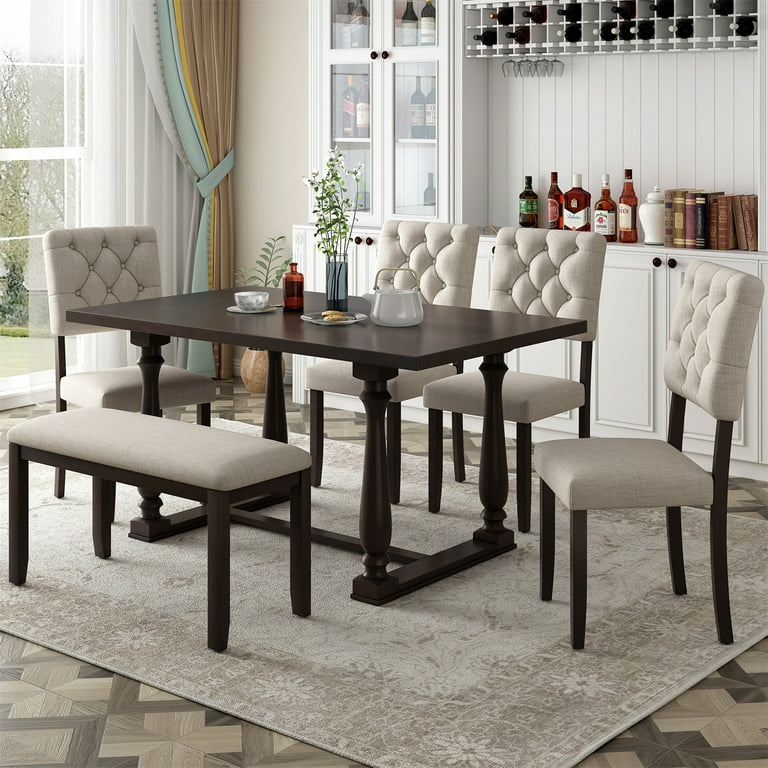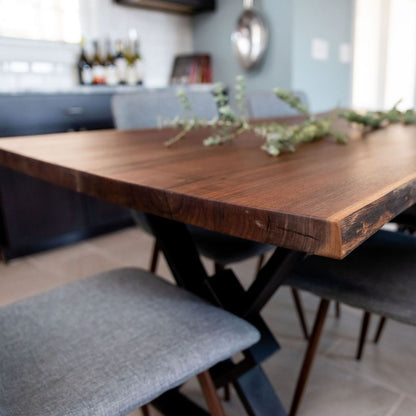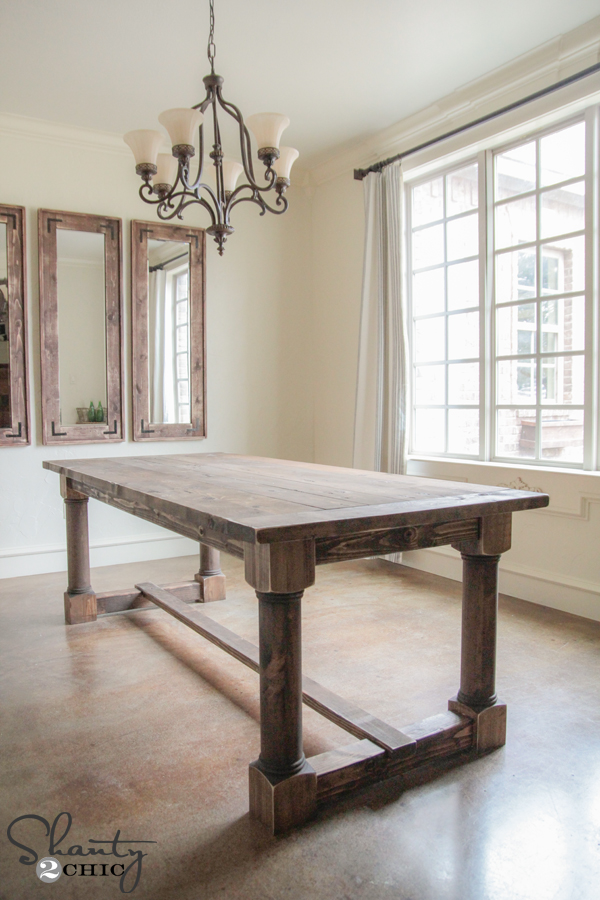How to Maintain and Care for Your Dining Room Table Legs
How to Maintain and Care for Your Dining Room Table Legs
Blog Article
Expert Tips for Installing Dining Room Table Legs for Optimum Stability
When it pertains to installing dining-room table legs, attaining optimum security is vital for both capability and looks. The process begins with selecting the best materials and equipment, complied with by careful positioning and factor to consider of weight distribution. Each step plays a critical duty in ensuring that the completed item endures everyday use without jeopardizing security or design integrity. Comprehending the subtleties of these components can substantially influence the overall outcome. What specific techniques can boost stability even additionally?
Pick the Right Legs
When choosing the proper legs for your eating area table, it is vital to think about both performance and visual appeals. The legs you select will dramatically affect the overall design and stability of the table. Initially, examine the table's planned usage; if you anticipate frequent gatherings, sturdier legs, such as those made from strong timber or steel, may be better, as they supply raised sturdiness and support.
Typical dining tables usually vary from 28 to 30 inches in elevation, so guarantee the legs line up with this criterion for convenience. Tapered legs can include a modern touch, while transformed legs could convey a more classic aesthetic.

Select Appropriate Equipment
Exactly how can the best hardware boost the stability and durability of your dining-room table? The selection of appropriate hardware is essential to making certain that the legs of your table are safely connected and able to withstand regular use. High-grade screws, bolts, and brackets supply the necessary toughness to support the weight of the table, as well as any kind of extra tons put upon it during events or meals.
When choosing screws, choose those made from durable materials such as stainless-steel or brass, which resist corrosion and preserve integrity gradually. The size of the screws is similarly vital; they must penetrate deeply into the table's structure without endangering integrity. For bolted connections, think about using lock washing machines to protect against loosening due to vibration or movement.
In addition, utilizing edge brackets can add additional assistance, particularly for bigger tables or those with heavier tops. These brackets distribute weight equally and assist keep the table's shape. Ensuring that the equipment you choose is proper for the particular materials of your table will further enhance its general security and longevity, allowing you to appreciate your eating experience for years to find.
Ensure Correct Positioning
Proper alignment of dining area table legs is vital for both aesthetic allure and functional stability. To achieve ideal alignment, start by measuring the range from the table's corners to the leg attachment points.
Use a degree during installation to verify that each leg is vertical to the table top. It click site is suggested to mark the preferred leg positions on the bottom of the table with a pencil or covering up tape prior to securing them.
Additionally, double-check the alignment after the initial screws are tightened up, as modifications may be required before fully securing the hardware. By prioritizing correct positioning, you not only enhance the table's total layout but likewise make sure that it stays practical and stable for many years to find.

Think About Weight Distribution
After ensuring appropriate placement of the eating area table legs, it is essential to consider weight distribution to boost stability and capability. dining room table legs. Correct weight circulation is important in stopping ensuring and wobbling that the table can sustain its desired lots without danger of tipping or falling down
When placing the legs, ensure they are put at equivalent ranges from the center of the table to equally disperse the weight across the framework. Think about the weight of the tabletop and any kind of things that will regularly hinge on it, such as decorative pieces or tabletop devices. Tables with larger surface areas need to ideally have legs positioned closer to the edges, as this maximizes the base of assistance and minimizes the risk of instability.
Additionally, if the table is meant for usage in a high-traffic area, consider utilizing much heavier products for the legs or including supporting elements, such as cross-bracing or a lower rack - dining room table legs. These modifications can aid keep balance and prevent changing throughout use. Ultimately, a well-considered weight distribution approach will substantially boost the table's overall performance, guaranteeing it continues to be a eye-catching and practical centerpiece for your eating space
Examination Security Before Use
Checking the stability of the dining-room table prior to use is an important action that ought to not be forgotten. Making sure that the table is steady and secure can prevent mishaps and lengthen the life expectancy of the furniture. Begin by applying mild pressure to numerous factors on the table surface area. Lower on the center and after that along the sides, observing any type of wobbling or moving. Identify the legs or joints that may call for adjustment. if the table shows instability.
Next, check that all screws and bolts are tightened effectively. Loose links can bring about instability and potential damages with time. If necessary, utilize timber adhesive on joints to boost stability, ensuring to allow adequate drying time.

Final Thought
To conclude, the installment of eating space table legs calls for mindful factor to consider of products, hardware, positioning, and weight circulation to attain optimum stability. By picking sturdy legs and high-quality bolts, guaranteeing specific placement, and dispersing weight evenly, the architectural integrity of the table can be considerably enhanced. Performing a stability test before normal use additionally makes sure that the table will certainly stand up to everyday stress, thus providing a dependable and secure eating experience.
When it comes to installing dining area table legs, attaining optimum stability is critical for both functionality and aesthetic appeals. The legs you choose will dramatically impact the overall design and stability of the table (dining room table legs). Basic eating tables commonly range from 28 to 30 inches in elevation, so guarantee the legs line up with this criterion for convenience.Proper alignment of eating room table legs is essential for both visual charm and useful security.In conclusion, the installment of eating space table legs needs mindful factor to consider of products, hardware, alignment, go and weight distribution to attain maximum security
Report this page